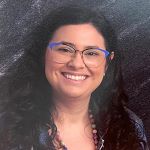The Role of Elementary Science Instruction in Preparing Students for the California Science Test
By Krista Pohl, Education Programs Assistant, and Vigdis Asmundson, Education Research Evaluation Administrator, California Department of Education (CDE)
In California, the California Science Test (CAST) is a statewide assessment aligned with the California Next Generation Science Standards (CA NGSS) that measures what students know and can do in science. While the CAST is administered in fifth grade, it is important to recognize that science education in all elementary grades (K-5) is critical in preparing students for success.
The CAST assesses student knowledge and application of scientific concepts, focusing on the three dimensions: science and engineering practices, disciplinary core ideas, and crosscutting concepts. Students at each grade level build on and connect their learning to what they have learned previously. Within the CA NGSS, student learning spirals upward as they revisit core ideas, practices, and concepts multiple times, adding additional layers of complexity and refining conceptual models. These dimensions are introduced and reinforced throughout elementary school, which helps establish a strong foundation for more advanced learning.

The CAST draws on CA NGSS performance expectations (PEs) from the whole grade band, so each test assesses PEs from earlier grade levels. For example, the grade five assessment draws on PEs from grades three through five (3–5) and includes the foundational concepts that are addressed in kindergarten through grade two (K–2). Since the CAST is administered in grades five, eight, and high school, each test assesses multiple years of science instruction.
Introducing students to science in elementary school helps to develop critical thinking skills. Students become comfortable with exploration, hands-on experiences, and interacting with others. Plus, it’s fun!
For more guidance about preparing students for the CAST, teachers can access a variety of resources and support materials available on the California Science Test webpage on the CDE website.
About the Authors

Krista Pohl is an Education Programs Assistant with the California Department of Education (CDE) in the Assessment Development and Administration Division. She is currently working in the Science Office on the California Science Test (CAST) organization, development, and outreach. Leading to her role with the CDE is eight years of elementary school teaching experience, including two years as a Professional Development Coordinator. Krista has a Master’s Degree in Instruction and Curriculum and Multiple Subject Teaching Credential.

Vigdis Asmundson is the lead administrator of the Science Office in the Assessment Development and Administration Division of the CDE. She is currently completing a Ph.D. in School Organization and Educational Policy at the University of California, Davis. She also served as a School Board Trustee for the Davis Joint Unified School District. Vigdis was a teacher for 19 years, primarily teaching middle school science, as well as a variety of subjects in elementary, high school, and higher education in California, as well as a variety of populations across the United States and internationally.




